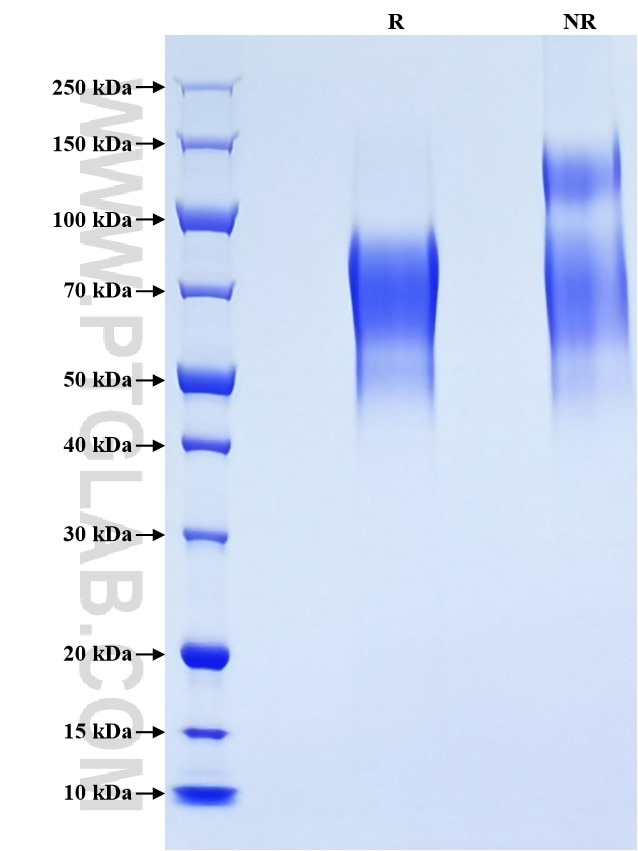Recombinant Mouse CD68 protein (His Tag)
Species
Mouse
Purity
>90 %, SDS-PAGE
Tag
His Tag
Activity
not tested
Cat no : Eg0787
Validation Data Gallery
Product Information
| Purity | >90 %, SDS-PAGE |
| Endotoxin | <0.1 EU/μg protein, LAL method |
| Activity |
Not tested |
| Expression | HEK293-derived Mouse CD68 protein Asp21-Ser291 (Accession# P31996-1) with a His tag at the C-terminus. |
| GeneID | 12514 |
| Accession | P31996-1 |
| PredictedSize | 29.8 kDa |
| SDS-PAGE | 60-90 kDa, reducing (R) conditions |
| Formulation | Lyophilized from 0.22 μm filtered solution in PBS, pH 7.4. Normally 5% trehalose and 5% mannitol are added as protectants before lyophilization. |
| Reconstitution | Briefly centrifuge the tube before opening. Reconstitute at 0.1-0.5 mg/mL in sterile water. |
| Storage Conditions |
It is recommended that the protein be aliquoted for optimal storage. Avoid repeated freeze-thaw cycles.
|
| Shipping | The product is shipped at ambient temperature. Upon receipt, store it immediately at the recommended temperature. |
Background
CD68 is a 110 kDa transmembrane glycoprotein widely expressed in monocyte cell types, such as macrophages, microglia, and osteoclasts. It is located at the lysosome and plasma membrane and is essential in various physiological and pathological processes, including atherosclerosis formation, inflammation and auto-immunity, bone-resorbing promotion, and tumor progression. It participates in the cellular response to lipopolysaccharide/oxidized low-density lipoprotein particle stimulus and negative regulation of dendritic cell antigen processing and presentation.
References:
1. C L Holness, et al. (1993) Blood. 81(6):1607-1613. 2. Maria C de Beer, et al. (2003) J Lipid Res. 44(4):674-685. 3. Li Song, et al. (2011) J Lipid Res. 52(8):1542-1550. 4. Jason W Ashley, et al. (2011) PLoS One. 6(10):e25838. 5. Gunnar Steinert, et al. (2014) Cancer Res. 74(6):1694-1704. 6. Giuseppe Troiano, et al. (2019) Oral Oncol. 93:66-75.

